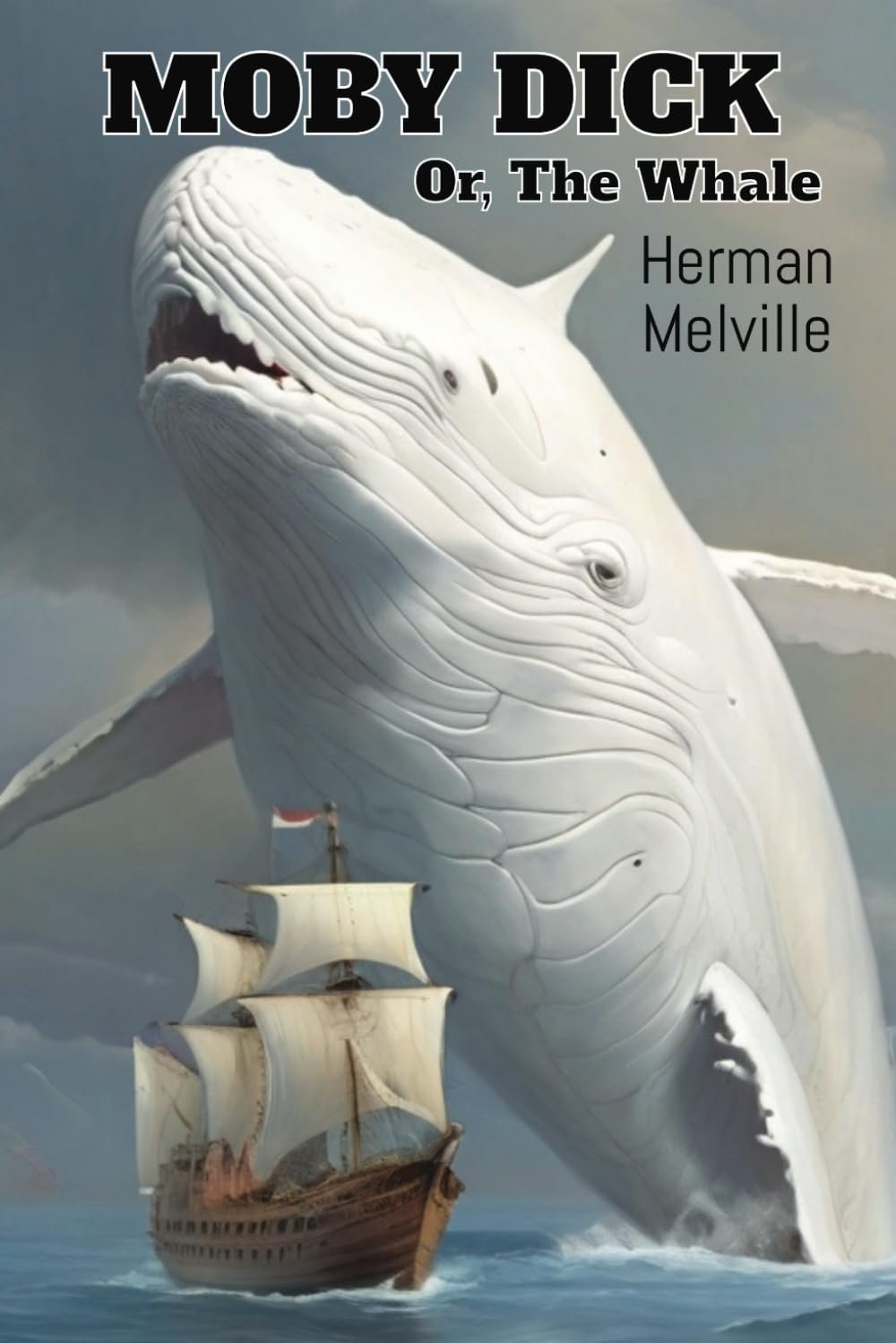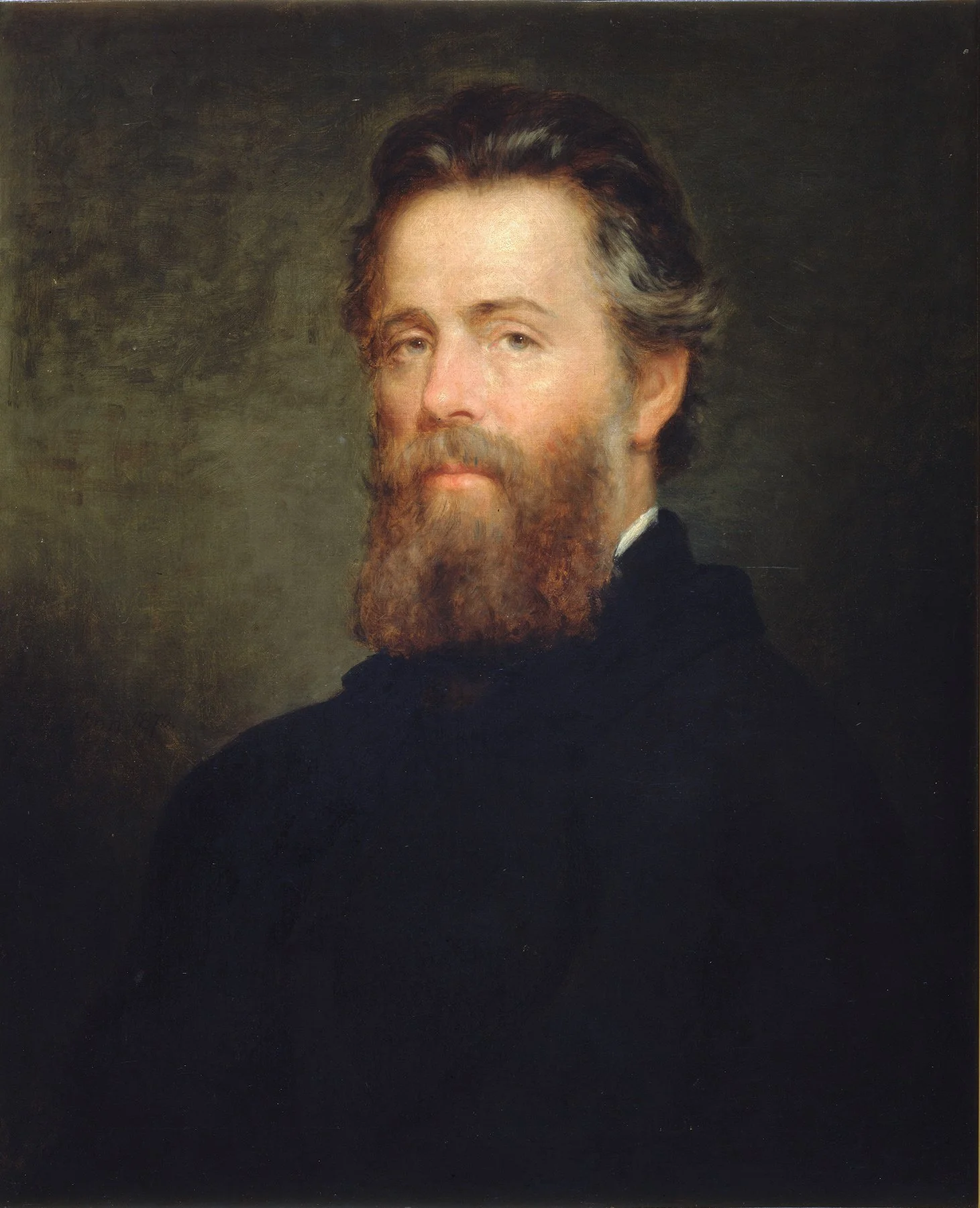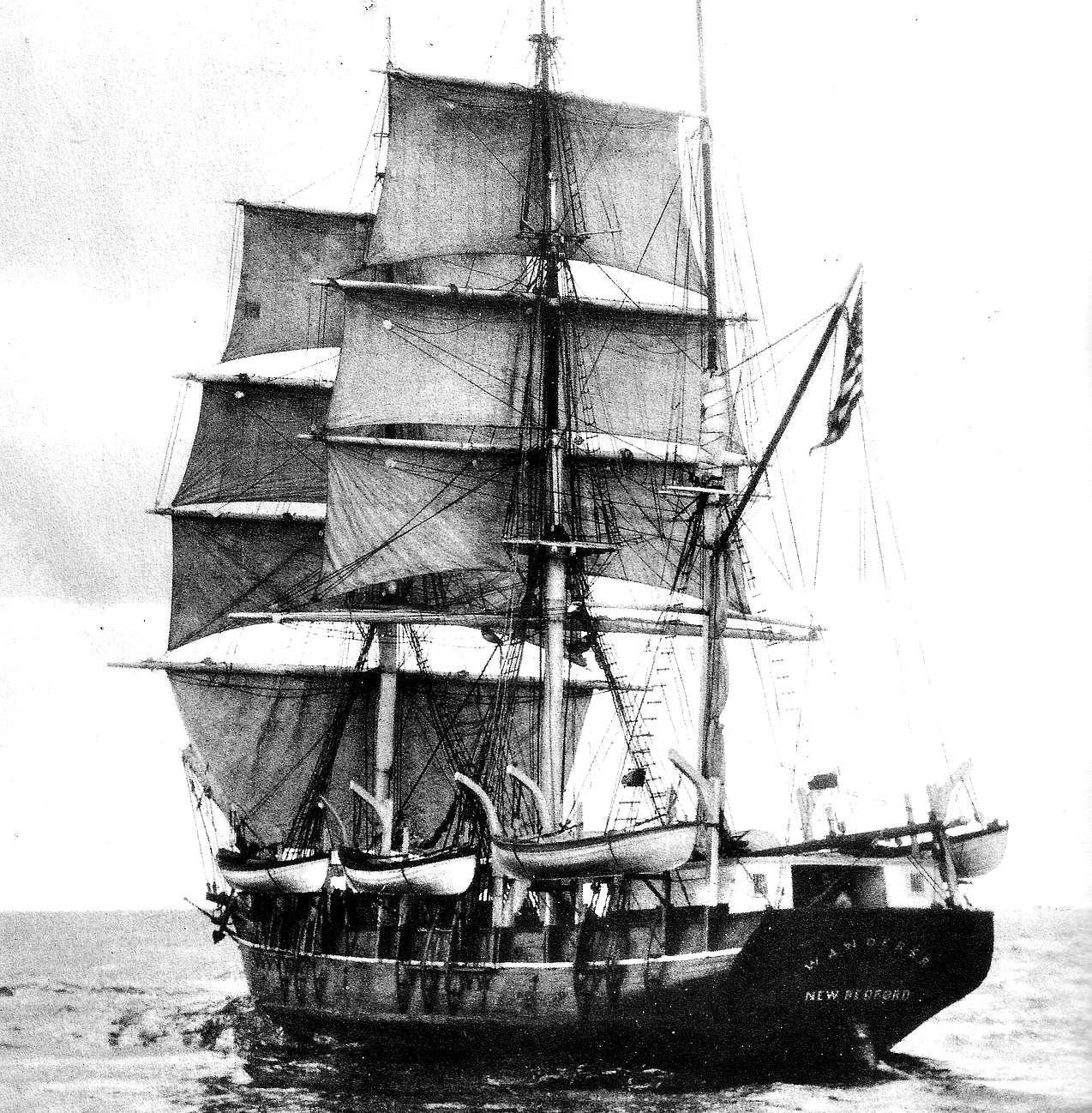The Whale… Herman Melville
The Sea, The Quill, and the Uncharted Life
1886-87
Beneath the creak of an old wharf and the salt-thick fog of a Nantucket dawn, Herman Melville’s words still echo. His was a life as restless and unpredictable as the oceans he so often described. From scrappy beginnings in New York City to the wild shores of the South Pacific, Melville transformed hardship and wanderlust into some of the most enduring literature in the American canon.
This is the story of a man who chased horizons—on ships, on pages, and within his own soul.
Beginnings: A City Boy with Ocean Dreams
Birth: August 1, 1819 – New York City, New York
Herman Melville entered the world in a bustling, mercantile Manhattan that was just beginning to stretch skyward. His father, a charming but financially reckless importer, died suddenly when Herman was twelve, leaving the family nearly destitute. It was a childhood marked by upheaval—schooling interrupted, apprenticeships started and abandoned, and a steady hum of longing for something bigger, freer, more romantic than the counting house.
Books were his first escape. Tales of the sea—particularly those by James Fenimore Cooper—fueled his imagination. Soon enough, that fantasy would become reality. At the age of twenty, Melville signed on as a greenhand aboard the whaling ship Acushnet, bound for the Pacific.
The Whale
“A whale-ship was my Yale College and my Harvard,” Melville would later write, summing up his education on the open ocean.
Voyages: The Sea as Classroom and Catalyst
Melville’s years at sea were as dramatic as any novel. He witnessed the brutal labor of whaling firsthand, deserted his ship in the Marquesas Islands, and lived among Polynesian islanders—experiences that later shaped the lush, sometimes shocking narratives of his early books.
From island escapades to perilous escapes aboard Australian vessels, his travels gave him raw material for adventure novels like Typee (1846) and Omoo (1847). These books made him an overnight literary star. Readers devoured his exotic, semi-autobiographical tales, fascinated by his depictions of distant worlds.
The Great White Whale: Moby-Dick
By 1851, Melville’s ambition outpaced his early success. His masterpiece, Moby-Dick; or, The Whale, was a radical departure from the breezy travelogues that made him famous. Inspired by his whaling days and deeply influenced by his friendship with writer Nathaniel Hawthorne, Melville crafted a sprawling, symbolic epic exploring obsession, fate, and the unknowable forces of nature.
The novel’s release was… complicated. Critics were baffled. Sales were meager. To a world expecting tropical adventure, Melville had delivered a philosophical leviathan.
Yet today, Moby-Dick stands as one of the greatest works of world literature—a stormy testament to Melville’s vision.
Notable Quote:
“Call me Ishmael.”
– The immortal opening line of Moby-Dick



